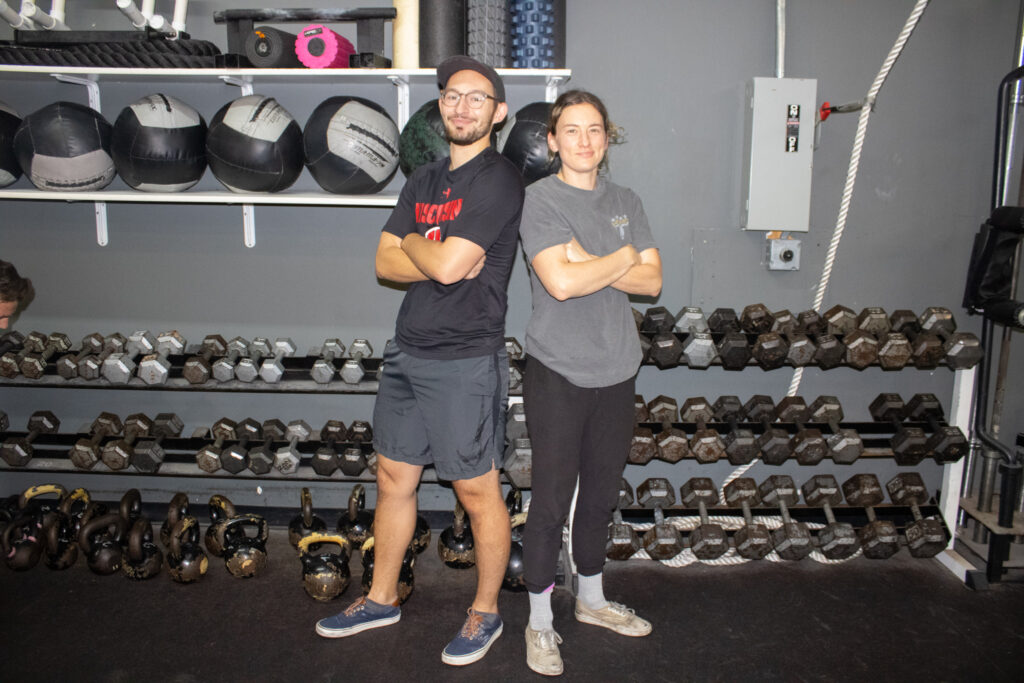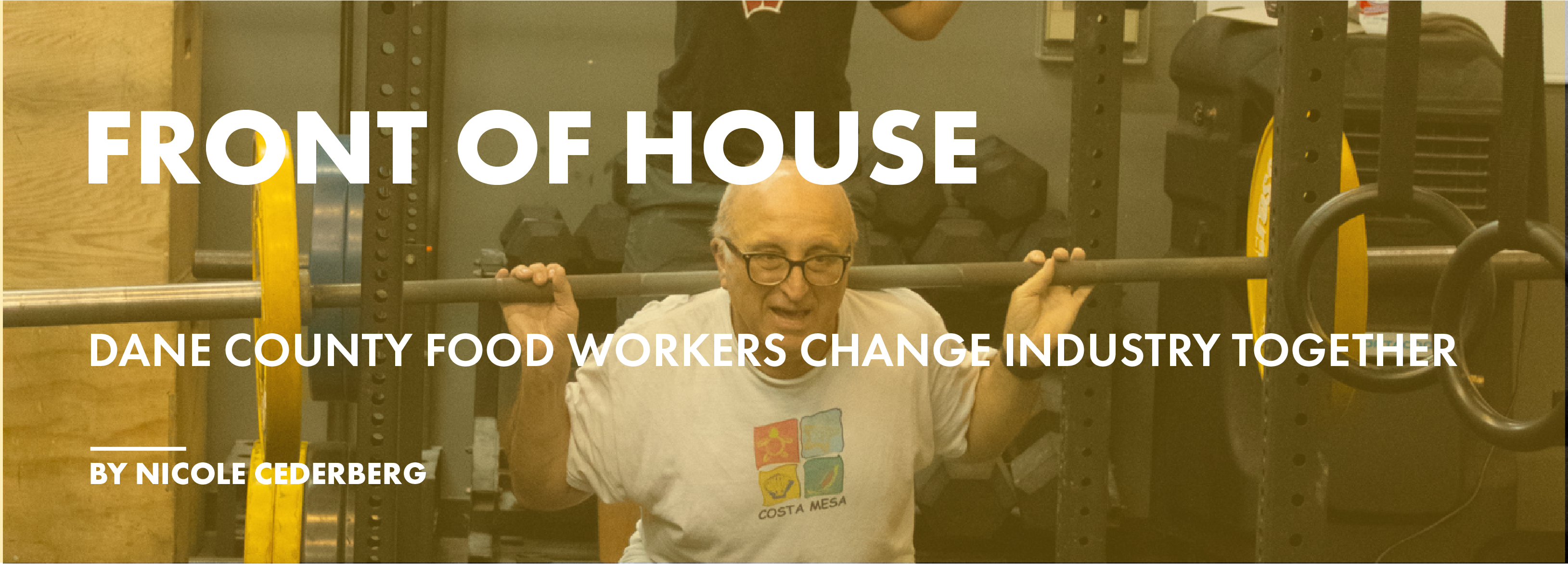Wander into Short Stack Eatery just off Madison’s State Street, and you’ll find friends hunched over plates of pancakes, servers bustling to tables with eggs and coffee, and bussers whisking away the remains.
But what patrons don’t see is the sometimes darker side of the food industry — one where workers routinely experience burnout, struggle with their mental health or battle substance abuse issues.
The food service industry has the most substance use disorders in full-time working adults ages 18-64, according to the Center for Behavioral Health Statistics. In an industry centered around the importance of coming together to bond over food, there is a lack of workers doing the same.
Alex Lindenmeyer, co-owner of Short Stack Eatery, saw her workers struggling firsthand. She explains that although Short Stack may not have the bar culture, other restaurants in the Madison food industry have a long-standing mentality that the only way to bond after a shift is by getting post-work drinks and then going out. This creates a cycle of working, getting drunk and doing it again.
“We’ve built this culture around drugs and alcohol. And I think that was a big showstopper in terms of ‘Hey, let’s get together and talk about this,’” Lindenmeyer says.
And that’s exactly what they did. The industry had many conversations about what was going on, and in 2022 Chef Evan Dannells invited a group of leaders in the food industry to come together and have conversations as a community rather than as individuals or restaurants. The group realized their experiences weren’t happening in a vacuum, and many establishments needed a place to come together.

Among the group invited was Noah Bloedorn. While completing his graduate degree in urban planning at UW–Madison, he was inspired and energized to organize more meetings to talk about what was happening in the food industry in Madison as a part of his graduate project.
“The big takeaway from the meeting was that we need to be organized,” Bloedorn says. “We need to be working together to have a political voice and start making that change that we want to see in this community.”
Dannells got the group together and with Bloedorn’s help they gave it a name: The Dane County Food Collective. Since 2022, this group has changed the way their restaurants in the Madison community operate. It started with a few leaders like Lindenmeyer and Bloedorn and grew into an organization that wants everyone in the community to come and learn how to change their own restaurants and hopefully the Madison food industry as a whole.
The collective opens itself to anyone in the food industry, including chefs, farmers, servers, restaurant owners, food businesses, and anyone else who has a tie to the industry. The group sees everyone in the collective as equals; Bloedorn even says he is hesitant to call himself the leader because of its collective approach. The mission from the start was to make the collective a place anyone in the community could join.
“The diversity within the organization, [exists] both in traditional ways like making sure that the organization itself reflects the diversity within our community, but also in making sure that all areas of the food system are represented,” says member Christy McKenzie.
After their first meeting, the group began to meet on the first Tuesday of each month when they would organize what the collective needed to plan. On top of their Tuesday meetings, they started “Sunday Meets” where people come together and talk about what they are going through. Sometimes, they talk about work; other times they just talk about mental health. According to Bloedorn, Sunday Meets are mostly used as a support group for the collective. Knowing they all come from the same background gives them an opportunity to be open and talk to someone who has been in a similar situation before.
As the community continued to grow, they added to their Health and Wellness programming. The first was weekly gym sessions at Pat’s Gym in downtown Madison. This program is what the collective calls “industry wellness classes,” where anyone in the industry can come to free group workouts twice a week.
“There’s a level of confidence that has come from a lot of people just continuing to show up and lift heavy weights and get their heart rate up,” Lindenmeyer says. “And that’s been really cool … instead of us all talking about ‘Oh, we raged last night, and I’m so hungover,’ it’s more so like, ‘I’m sore, and I’ll see you at Thursday’s workout.’”
The second program was brought to the collective by Lindenmeyer. In 2017, she did a training through Wisconsin Peer Specialists, which trains people how to offer mental health and substance use support by establishing commonality through their own experiences.
Lindenmeyer came back to Short Stack with a new human resource approach that would give workers the space to tell her what they were struggling with and how it could affect their job or availability. She learned about the actions she can take to support her workers like making sure their schedule works with their parole meetings or being a court advocate for them.
“The more I know about it,” Lindenmeyer says, “the more I can help.”
A few years after seeing her workers become more open with her, Lindenmeyer brought the training to the Dane County Food Collective.
She believed that by training people with this program, they could then bring it to the entire Madison food industry.
“Now it’s our work as a collective to say, ‘How can we put together folks that have the training to be a support network for all the restaurants in the collective?’” Lindenmeyer says.
Meghan Stern, an executive committee member of the collective, went through the training this year. When Stern first heard about it, she didn’t think she would need it because she has a background in counseling. After the course, she said it changed her life.
“In any counseling position, you don’t share personal information. You’re working on advising and working on where we are going next and how you are going to get there,” Stern says. “In this specific situation, you are the passenger in their car, and the point of it is you say, ‘I’ve been in this car, I know what it feels like’ — you would never say that in a counseling situation.”
Stern and the 15 other trainees are now able to be there for their own communities and help them through hard times. The approach is about showing how people have more in common than they think, which is exactly what the collective is all about.
The distant future of the Dane County Food Collective isn’t set in stone to have room to shift into whatever the community needs. In the near future, however, the members of the collective just want it to continue to grow so that everyone in the industry knows they can join.
“Just show up,” Stern says. “There’s no expectation.”
